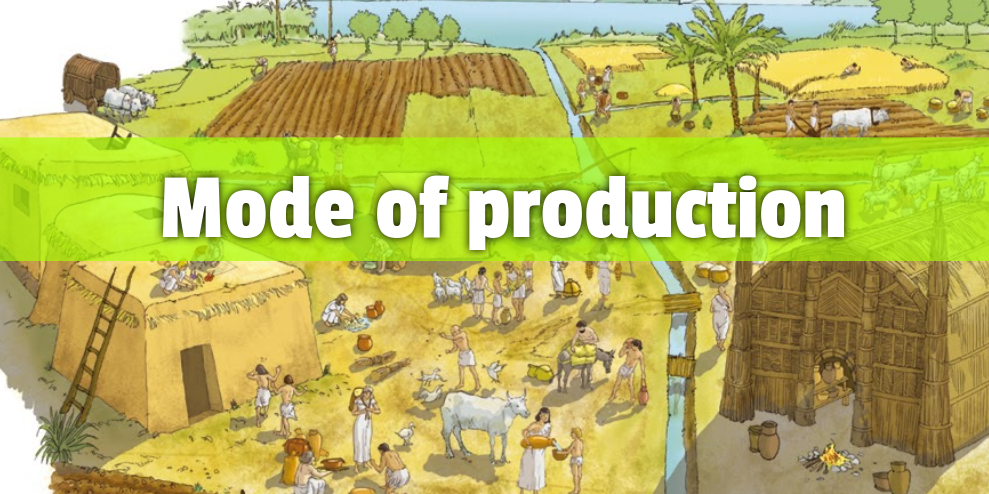Mode of production

Set of social relations that shape production, form the economic structure of society and correspond to a given degree of development of the productive forces.
Mode of production and historical transformation
The discovery of the concept of "mode of production" is at the very root of historical materialism. The "mode of production of material life" is a structure of social relations that:
- defines a society in line with the development of its productive forces,
- limits a society's forms of self-awareness and
- shapes its possibilities of revolutionary evolution and overcoming by the new mode of production latent in the objectives of its revolutionary class.
http://dictionary.marxismo.school/Mode of productionIn the social production of their existence, men enter into certain, necessary relations, independent of their will; these relations of production correspond to a certain degree of development of their material productive forces.
The whole of these relations of production constitutes the economic structure of society, the real basis, upon which a legal and political superstructure is built, and to which particular social forms of consciousness correspond. The mode of production of material life conditions the process of social, political, and intellectual life in general. It is not men's consciousness that determines reality; on the contrary, it is social reality that determines their consciousness.
In the course of their development, the productive forces of society come into contradiction with the existing relations of production, or, what is only their juridical expression, with the relations of property within which they had hitherto moved. From forms of development of the productive forces that they were, these relations become obstacles to these forces. Then an era of social revolution opens up. The change that has taken place in the economic base more or less slowly or rapidly disrupts the whole colossal superstructure. […]
A society never disappears before all the productive forces it can contain are developed, and new and higher relations of production are never replaced in it before the material conditions of existence of those relations have been incubated in the very bosom of the old society. This is why humanity never sets out to solve more than the problems it can solve, because, looking closer, it will always be seen that the problem itself only arises when the material conditions to solve it exist, or are in a state of existence.
Broadly speaking, the asian, ancient, feudal, and modern bourgeois modes of production can be designated as many other progressive epochs of social economic formation. The bourgeois relations of production are the ultimate antagonistic form of the process of social production, not in the sense of individual antagonism, but in the sense of an antagonism which is born of the social conditions of existence of individuals; the productive forces developing within bourgeois society create at the same time the material conditions to resolve this antagonism. With this social formation the prehistory of human society ends.
Karl Marx. Preface to "Contribution to the Critique of Political Economy", January 1859.